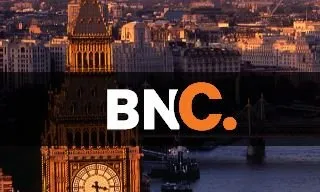

The multinational professional services firm, Ernst & Young (EY), recently announced a Startup Challenge in London, to “explore how blockchain technology can tackle challenges in digital rights management and energy trading.”
With headquarters in London, EY has more than 700 offices in over 150 countries. The company employed 212,000 people in 2015, with total global revenues of US$28.7 billion, making the third largest of the Big Four accounting firms.
PricewaterhouseCoopers is the largest with $35.4 billion in revenue, followed by Deloitte with $28.7 billion. KPMG is the smallest of the Big Four, reporting $24.44 billion in revenue.
This is EY’s third Startup Challenge, and the first to focus on blockchain technologies. The inaugural event was held in the City of London too, at Level39. The second Challenge was held in Berlin.

EY started accepting applications for the six-week mentorship program on July 11, the deadline is August 14. Six startups will be announced on September 6, and begin the Challenge on September 12. “During the six week programme, the six selected startups will move into an innovation hub in the office space of a technology accelerator in Canary Wharf, London,” the firm states.

The program ends with a “showcase day” on October 20, when the startups will demonstrate their blockchain applications. “For the first time, the startups will produce prototypes that will give potential clients the opportunity to interact with their products,” according to EY’s announcement.

This year’s Challenge focuses on two key industry issues; Digital Rights Management (DRM) and energy trading.
The firm hopes to find a blockchain-based solutions pertaining to IP rights, especially the ownership of proprietary content. “Media companies are looking to improve their investments in content,” the firm explained, “make better use of their current assets and better assess risks.”
Tracking content and making rights visible is one function EY would like to see the applicants pursue, controlling access to the content is another. Most importantly, they’d like a novel way for content owners and consumers to send and receive payments.
Imogen Heap demonstrated how the music industry could use blockchain technology to create a fairer ecosystem, while protecting content rights, last year.
Her focus was on transparency, and a distributed payment network that can cut out the overpaid recording industry middlemen. Heap held an educational event promoting the technology, and went so far to release a free single where she used a blockchain to create the first instance of “fair trade music,” in her words.

The other area of EY’s focus is in Energy trading, a specific area of commodity trading that deals with real-time electricity flows using complex supply chains. Energy trading is believed to be in a particularly good position to benefit from the transparency of blockchains. “Trading in energy and commodities remains a fundamentally manual and complex process,” EY explained, “and this can create a lack of transparency and inefficiencies that increases risk and operational costs.”
“Blockchain technology has the potential to help energy trading organisations transform the way trades are created and settled,” the company continued, “driving down costs and increasing the speed and reducing the risks in the market. This could provide greater confidence and boost liquidity in the marketplace.”
A report published earlier this year by Deloitte, “Blockchain applications in energy trading,” outlined many areas where blockchain technology can improve the existing system. For example, frictional costs such as broker fees will be removed or reduced, therefore speeding up the process and reducing costs.
Deloitte claims that blockchains can also help with regulatory reporting requirements, standardizing data formats, reducing the risk of fraud and transactional errors as well as credit risks.

While Deloitte does not say that they expect the entire energy market to become blockchain-enabled all at once, the firm states that “We will likely see pilot programmes with a select group of market participants centered on specific functional applications such as payments or smart contracts.”
____________________________________________________________________________
According to the BNC STEEM, Steem was trading at $3.5373 at the time of writing.